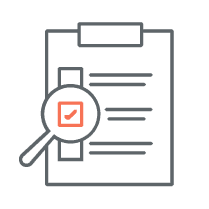Training Experimental Design

Design of experience training
- e-learning
- face-to-face
- statistics

Duration

Rate

Master experimental design to understand processes
On completion of the Design of Experiments course, you will be able to design optimized experiments, saving time and reducing costs by minimizing the number of trials required. By mastering complete and fractional designs, you'll be able to select the method best suited to your objectives, while limiting the risk of error or bias in the interpretation of results.
Our advantages
e-Learning or face-to-face
Your Feedback
Objectives
- Building an experimental design
- Analyze test results
- Modeling a process
- Critiquing a model
For whom
The Design of Experiments training course is designed for employees, particularly engineers, supervisors and technicians, who carry out tests as part of the design and improvement of products or industrial processes.
Prerequisites
- Basic use of the Internet and a web browser.
- A level III qualification and/or 2 years' initial professional experience.
Duration
20 hours of animated 100% e-Learning, implementation of theoretical points on industrial simulators. The e-Learning is available 24/7 for 2 months for this training course.
Teaching and technical resources
- 100% E-Learning training on a dedicated platform
- Our teaching methods are mediatized (voice, text, exercises), fun and multimodal, with tests at every lesson.
- Theoretical presentations
- Case studies
- Online availability of PDF and Excel support documents
Teaching team
With over 30 years' experience, rich in teaching and practical experience, our industrial quality training organization provides you with training and consulting services to develop and improve your performance and know-how. All our consultants are Master Black Belt Lean Six Sigma and have at least 10 years' experience in applying Lean and Six Sigma tools in industrial environments.
Accessibility
The Experience Plan training course is accessible to people with disabilities. Please contact us for specific accommodation options. We will do our utmost to accommodate you.
Evaluation methods
- Attendance sheets.
- Oral or written questions (MCQs).
- Case studies.
- Practical work
Program
Complete plans (3 hours)
- Explain the benefits of experimental design versus the traditional approach
- Interpret the results of a design of experiments
- Building a complete plan
Fractional 2k (3 hours)
- Understanding the conditions for fractional design
- Understanding the risks of fractional design
- Choosing the right plan for the right strategy
- Managing the risks of fractional designs on interactions
- Minimize the number of trials
Fractional over 2 levels (3 hours)
- Understand how to build a plan with more than 2 levels
- Construct a fractional plane under these conditions
- Introduction to D-optimality
Response surface (3 hours)
- The benefits of response surface plans
- The different planes in the response surface
- How to use a centered composite plane
Multi-Y optimization - desirability (3 hours)
- Understanding the principle of desirability
- Optimize several answers at the same time
Mixing plans (3 hours)
- Understanding the difference between a mix design and a factorial design
- Know how to construct mixing plans with 2 to 4 components with conditions on the min and/or max proportions of each component
- Analyze mixing plans to find the best configuration
- How to construct a mixing plane using D-optimal point selection
- Know how to mix a mixing plan with a factorial plan on process factors
Two learning modes
- E-learningSelf-paced learning250€
- 20h of e-learning courses
- Online support
- Training available for 2 months
- 2-month free access to Data Analysis module
- PresentialIn-company training3
- Application to a concrete case in class
- Using the Data Analysis module

